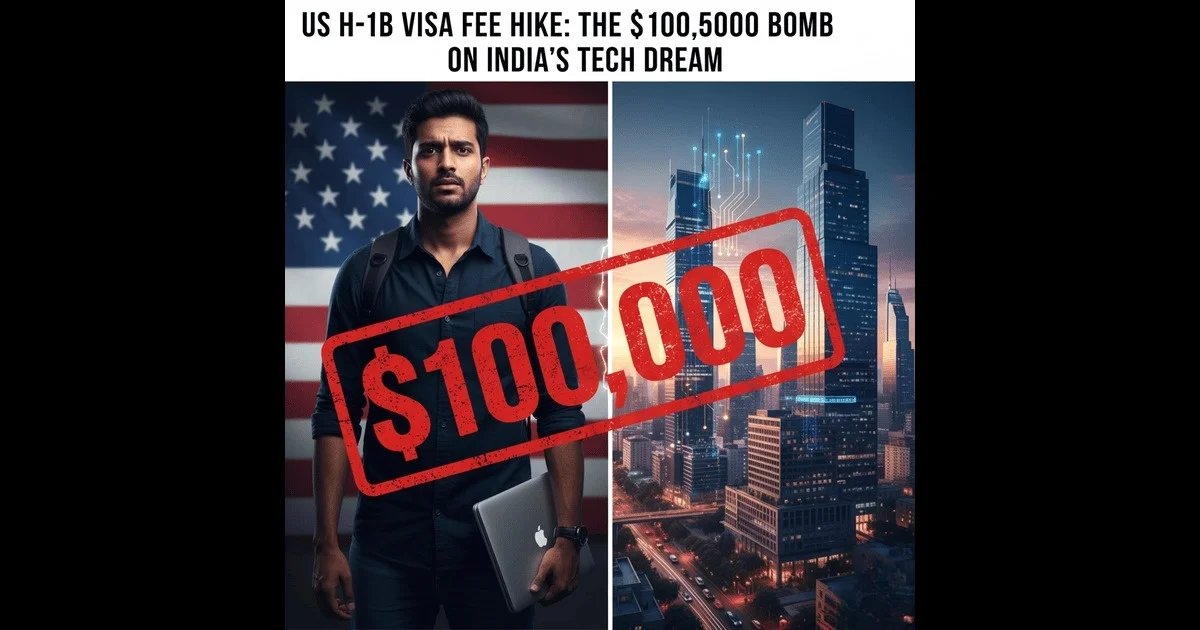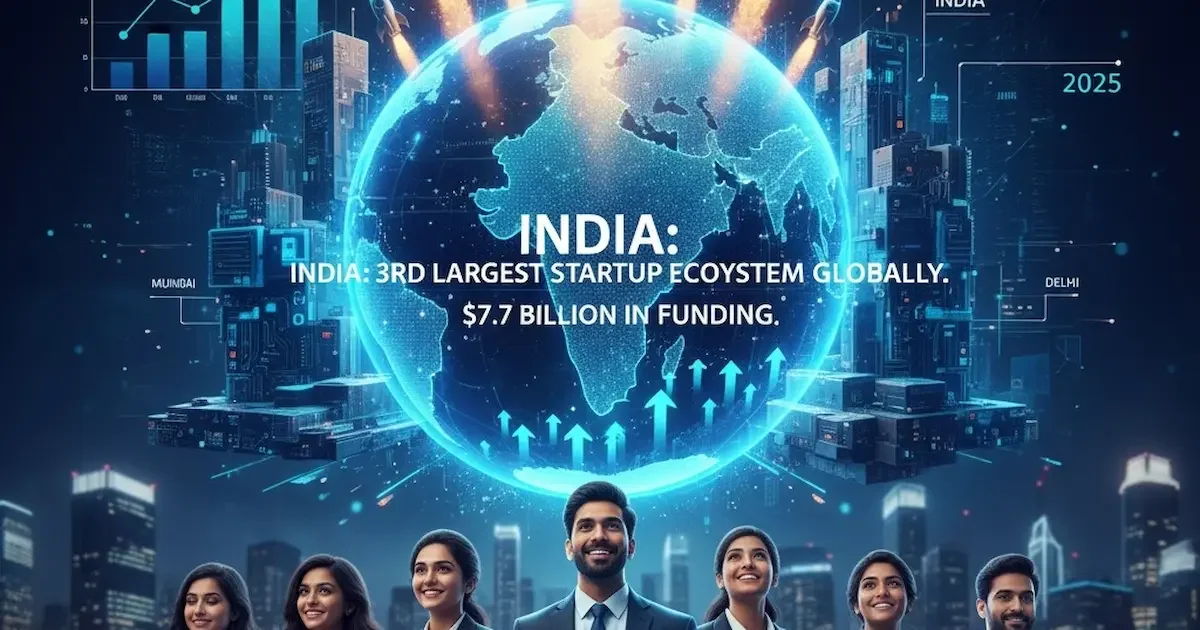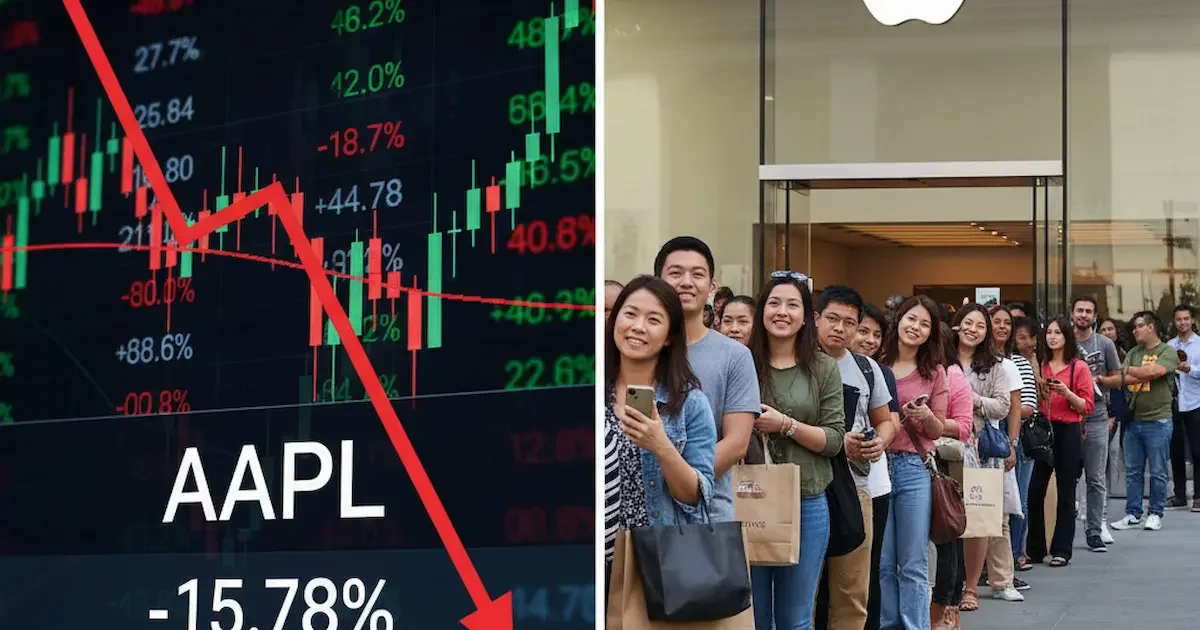The US Just Dropped a $100,000 Bomb on the Indian IT Dream. Here’s Why It’s a Bigger Deal Than You Think.
Bengaluru - For decades, the playbook was simple. Get an engineering degree. Get hired by a big Indian IT firm. Get your H-1B visa. Go to America. Make dollars. It was the blueprint for an entire generation’s aspirations, a well-trodden path from the cubicles of Bengaluru and Hyderabad to the suburbs of New Jersey and California.
Well, the US just took that playbook, doused it in gasoline, and lit it on fire.
By jacking up the fee for a new H-1B visa to a staggering $100,000, the US government has sent a shockwave through Dalal Street, rattling the very foundations of India’s celebrated $250 billion IT industry. The immediate reaction was a bloodbath. The Nifty IT index took a nosedive, wiping off over ₹1.36 lakh crore in market cap from the top five IT firms in just four days. Stocks of giants like TCS, Infosys, and Wipro tumbled as investors panicked.
But this isn't just about numbers on a stock ticker. This is about a fundamental threat to a business model that India perfected over thirty years. And let's be honest, it’s a moment that forces us to ask some uncomfortable questions about our own backyard.
So, What's the Big F*cking Deal?
Let’s cut the crap. The official line from Washington is that this move is to "curb abuses" and "protect American workers." The argument is that the H-1B program, intended for the "best and brightest," had become a pipeline for companies to replace perfectly good American employees with cheaper foreign labour. The $100,000 fee, they claim, will make it "non-economic" to hire anyone but the most essential, high-skilled talent.
Whether you buy that or not, the impact is undeniable. For Indian IT companies, the cost of sending a junior or mid-level engineer onsite to the US just went from expensive to astronomical. Their entire business model was built on "cost arbitrage"—the simple math that an Indian engineer was cheaper than an American one, even after factoring in travel and visa costs. That advantage has been sledgehammered.
The immediate fallout is a margin squeeze. Analysts predict this could shave precious points off the operating profits of our IT giants. But the companies aren't just sitting there crying into their spreadsheets. They’re already adapting. For years, they've been slowly "de-risking" their dependence on H-1Bs by:
- Hiring Locally: They've been hiring more and more Americans, building a significant onshore presence.
- Nearshoring: Setting up delivery centres in cheaper nearby locations like Mexico and Canada.
- Offshoring on Steroids: Shifting even more work back to India.
This visa bomb will just accelerate those trends. Expect more work to be done out of India, not less. US banks and other clients, faced with higher costs passed on by IT vendors, are already looking to expand their own Global Capability Centres (GCCs) in India. In a strange, ironic twist, a policy meant to keep jobs in America might end up sending more high-value work flowing back to Indian shores.
The Human Cost of a Policy Shift
Beyond the corporate strategy and market jitters is the very real human cost. The news sent a wave of panic through the Indian diaspora. Techies on holiday or visiting family in India spent thousands of dollars on last-minute flights, scrambling to get back to the US before the rules kicked in, terrified of being locked out of the lives they’d built over years.
One software professional, who had lived in the US for 11 years, told the BBC he regretted the choices he’d made, saying, "I gave the prime of my youth to working for this country and now I feel like I'm not wanted."
This isn't just about a job. For many, the H-1B was the first step towards a Green Card and a different life. That dream now feels more distant and uncertain than ever.
A Kick in the Ass for India?
Here’s the uncomfortable truth. For too long, we've been content exporting our brightest minds. We celebrated their success in Silicon Valley but did little to create a Silicon Valley right here.
This H-1B shock, as painful as it is, might just be the wake-up call we need. The "brain drain" could finally become "brain gain." If the golden ticket to America is no longer available, where will our top engineering talent go? They might just stay home.
This could supercharge our domestic startup ecosystem. It could force our own companies to move up the value chain, shifting from being the world's back-office to creating world-beating products. Other countries like Germany, Canada, and the UK are already rolling out the red carpet, trying to lure the talent that the US is making unwelcome.
The question is no longer just how our IT companies will navigate this crisis. The real question is for us, as a country. Will we seize this moment to build an ecosystem that doesn't just retain our talent but allows it to thrive on its own terms?
The American dream for Indian techies may be on life support. Perhaps it’s time to focus on building the Indian dream instead.





